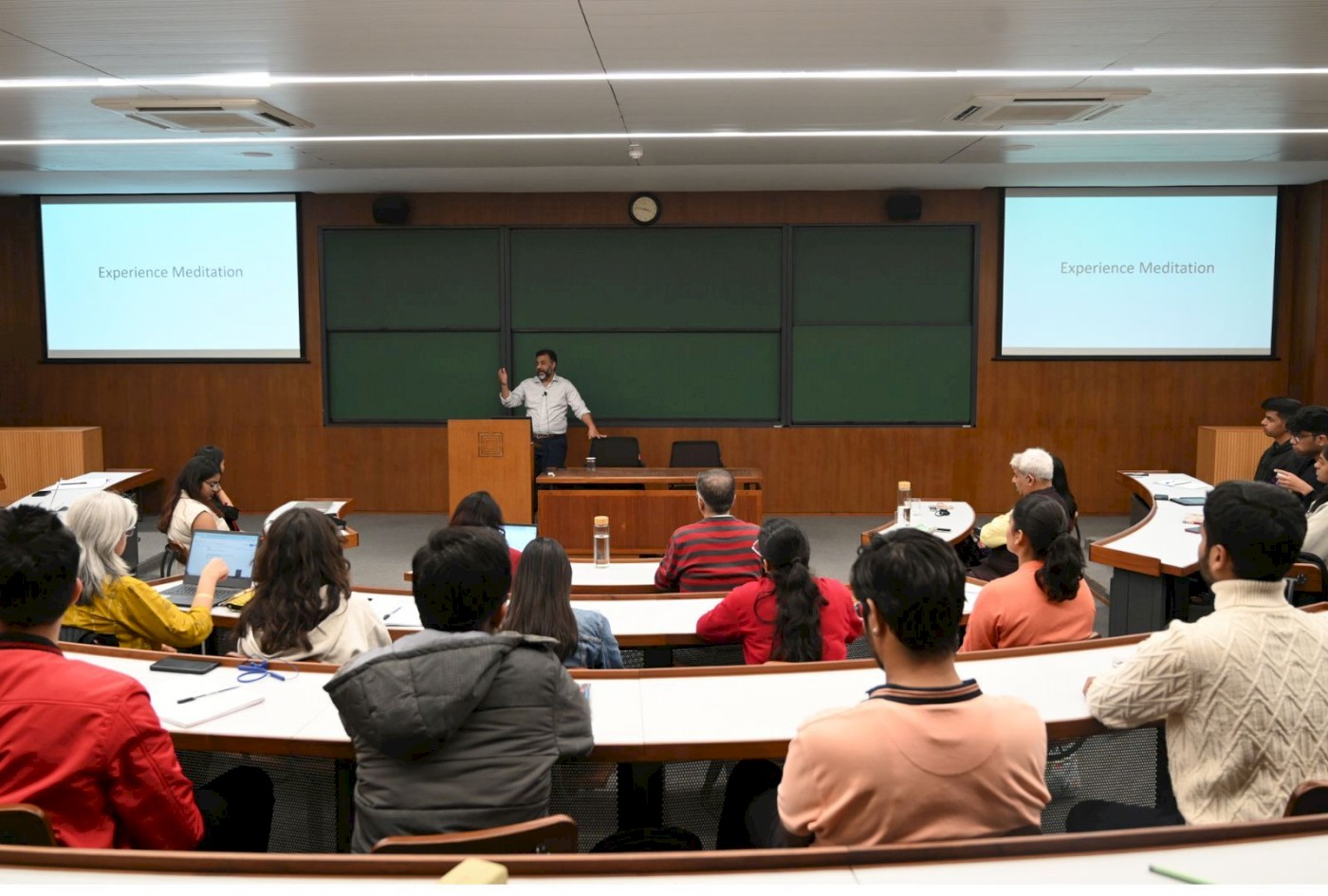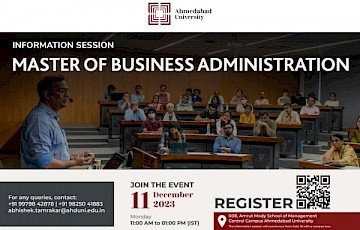Arvind Limited's Punit Lalbhai Speaks on Creating Sustainable Organisations and Landscapes at the Leadership Series

Addressing students and faculty as part of the Leadership Series organised by the Amrut Mody School of Management, Mr Punit Lalbhai, Executive Director, Arvind Limited, spoke about sustainability and the need for businesses to foresee that sustainability translates into a competitive advantage. Mr Lalbhai, who leads Arvind Advanced Materials, Engineering, and Agribusinesses, and also spearheads initiatives in sustainability, CSR, and innovation at the company, outlined specific green initiatives actioned by his organisation. “We understand that if a company has its fundamentals right, it has got the business right. We are not just following best practices and looking forward to more, but also ensuring that the industry benefits from our understanding of sustainability through collaborations and associations.”
Mr Lalbhai explained how the sustainability journey at Arvind began. “Textiles is the third largest water consuming industry in India. We realised that the villages around our manufacturing units will be soaked dry if we do not work on our water consumption.” Arvind Limited became the first company to use reverse osmosis in its manufacturing. “Not one drop of our huge requirement is fresh water; it is recycled. We lose 13 per cent of our water to evaporation, as well. So we now have a patented zero-discharge water technology. First, when we kickstarted these initiatives, it was a disaster, and it became a competitive disadvantage. But we knew that in the long run this would turn around. Arvind now looks at seven fundamentally right factors to run the business.”
The company has undertaken various initiatives to decarbonise. They have India’s largest rooftop solar at its Sankej manufacturing facility which has reduced its energy cost by 20 per cent. Some of the other things they undertook were incentivising farmers by harvesting thermal energy from their crop fields, recycling their cotton production, and working with sustainable cotton. Mr Lalbhai said Arvind is relying on technology as an enabler for their green practices. “We know sustainability is not something for the future; it is core to business practices now.”
He said that industry leaders also have to ensure everyone follows best practices in the industry. “Some may not have the means to go sustainable; it comes at a cost. So, we are trying our best to influence others through collaborations and associations.” The Sustainable Apparel Collaboration, of which Arvind is a founding member, has introduced the Higg Index for organisations to measure their sustainability practices. Mr Lalbhai is also the current Chair of the Apparel Impact Institute (AII), which plays the critical role of a technical clearing house for partner brands, manufacturers, and philanthropic donors, validating and aggregating proven environment initiatives in the domains of energy, water, and chemistry.
Concluding, Mr Lalbhai engaged the students in a meditation session. He said, “Today, our wellbeing is a result of external factors. Our world is excessively rational. This rational frame is beneficial, but it does not explain human performance. Besides skills, performance is driven by clarity, focus, attitude, and inspiration. An introspective practice helps in developing these areas. Once you have internal sustainability, it leads to sustainable organisations and to sustainable industries and landscapes.”
Answering a student’s question about failures and how Mr Lalbhai and his company have overcome them, he said, “We failed at several things. We were almost pushed to bankruptcy after 80 years of being, but we emerged leaner and stronger. When you’re successful, it is hard to see how you can fail and how you can reverse the situation if you have failed. We thought about it deeply, did a restructuring exercise, among other things, and emerged as we are today.”



